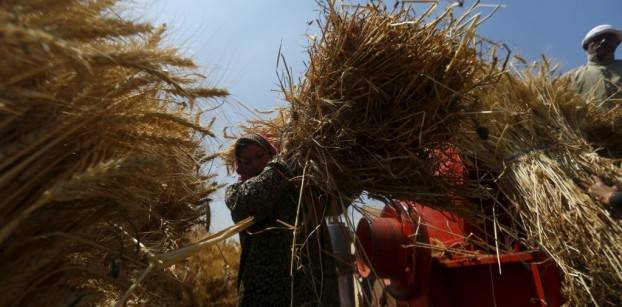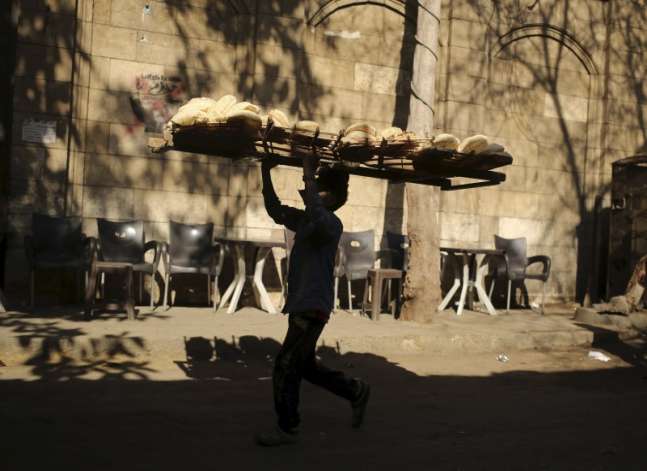Latest NEWS
- Aswat Masriya, the last word
- Roundup of Egypt's press headlines on March 15, 2017
- Roundup of Egypt's press headlines on March 14, 2017
- Former Egyptian President Hosni Mubarak to be released: lawyer
- Roundup of Egypt's press headlines on March 13, 2017
- Egypt's capital set to grow by half a million in 2017
- Egypt's wheat reserves to double with start of harvest -supply min
- Roundup of Egypt's press headlines on March 12, 2017
Egypt returns to zero tolerance of ergot fungus in wheat
By Maha El Dahan and Eric Knecht
ABU DHABI/CAIRO, June 8 (Reuters) - Egypt has rejected two shipments of wheat for containing trace levels of the ergot fungus, backtracking on a government pledge to apply international standards and alarming traders looking to do business with the world's largest buyer of the grain.
Earlier this year traders boycotted state wheat tenders after the country's agriculture quarantine authority began to apply a zero tolerance policy for ergot, a common grain fungus.
Suppliers said at the time the standard was impossible to meet.
The ministries of supply and agriculture later assured suppliers they would follow a 0.05 percent tolerance policy, a widely applied international standard.
This pledge has now been called into question after renewed quarantine authority rejections -- 30,000 tonnes of Polish wheat and 10,000 tonnes of Canadian wheat since April --despite their levels of ergot falling below 0.05 percent, traders said.
"The ergot problem was sleeping. It has not been resolved and it remains a serious problem," one European trader said.
The Polish wheat was imported by trading firm Venus while the Canadian grain was purchased by Five Star.
The Polish wheat, rejected twice since April, contained just 0.02 percent of ergot, a company source told Reuters.
Eager to have their stalled wheat accepted, the company took out advertisements in three state newspapers last month pleading with President Abdel Fattah al-Sisi to intervene and resolve the ergot crisis, the source said.
As Egypt's local wheat procurement comes to a close this month and as the country prepares to re-enter the international market, traders say the renewed rejections could make purchasing difficult.
Egypt's state grain buyer, the General Authority for Supply Commodities (GASC), declined to comment on the two rejected shipments or on the zero ergot tolerance policy.
"The weather problems in France, in Europe and the Black Sea are favorable to ergot development. This could make supplying GASC very difficult next season," another European trader said.
FAO REPORT
Egypt's agriculture ministry said it had received a crucial study on ergot conducted by the United Nations Food and Agriculture Organization (FAO) earlier in the year.
The report was commissioned to help standardize the country's regulations and ease the conflict between rules governing the agricultural quarantine authority and the supply and agriculture ministries.
"The report is with the minister," Eid Hawash, spokesman for the ministry told Reuters, ending weeks of speculation by traders on the fate of a study that was seen as potentially resolving the standoff over the country's import policy.
Hawash stressed that the FAO report alone would not be the sole factor in determining any change in policy and said he was unaware of what recommendation the report contained.
GASC said it had no information on the contents of the report.
In the meantime, government sources said the zero tolerance policy would continue to be applied by the agriculture quarantine authority on both public and private sector shipments, signaling the standoff still existed.
Traders, many of whom have opted to sit out state tenders since the wheat rejections earlier this year, said that purchasing from abroad will likely get even more expensive for Egypt in coming months.
"The risk premium they were already paying a few months ago will be even higher," one trader added. (Additional reporting by Michael Hogan, Valerie Parent, and Sybille La Hamaide; Editing by David Evans)













